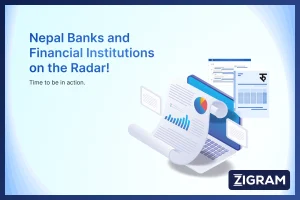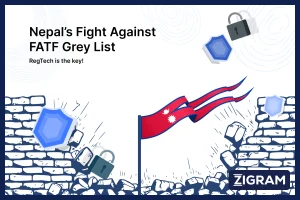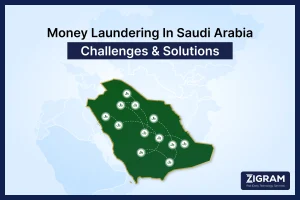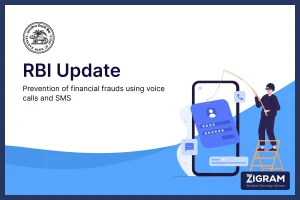Nepal’s inclusion in the FATF grey list highlights major deficiencies in its anti-money laundering (AML) and counter-terrorist financing (CFT) framework. The 2023 Mutual Evaluation Report (MER) underscores weak financial intelligence, poor regulatory enforcement, and low conviction rates for money laundering cases. Given these challenges, Nepal must adopt cost-effective Regulatory Technology (RegTech) solutions to enhance AML compliance, streamline financial monitoring, and improve enforcement outcomes without overburdening financial institutions.
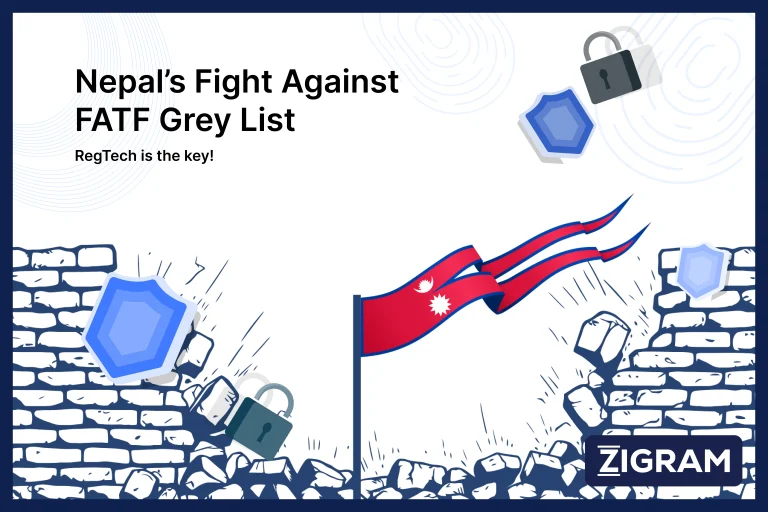
The Money Laundering Scandal That Led to Nepal’s Grey Listing
One of the most significant catalysts for Nepal’s grey listing was the involvement of Nepalese banks, businesses, and individuals in the global FinCEN 2020 leak, which exposed suspicious transactions worth billions of dollars. The leaked Financial Crimes Enforcement Network (FinCEN) files included transactions linked to Nepalese entities suspected of facilitating money laundering and illicit financial flows.
a. Key Entities and Transactions Involved
- Nepalese Financial Institutions: Several banks in Nepal were flagged for processing transactions linked to illicit financial activities, though specific names remain classified due to ongoing investigations.
- Business Networks: Nepali traders and business firms were found moving large sums internationally, often using shell companies with obscured beneficial ownership details.
- Smuggling and Underground Economy: Cases linked to gold smuggling, trade-based money laundering, and cross-border hawala networks were identified, with funds moving through Nepal to and from India, Dubai, and China.
b. Impact of the Scandal on Nepal’s AML Framework
- Weak Regulatory Oversight: The inability of Nepal’s financial authorities to detect these transactions in real-time highlighted gaps in monitoring systems.
- International Scrutiny: Nepal’s exposure in the FinCEN leaks drew attention from FATF, prompting a deeper assessment of its AML/CFT framework.
- Urgent Need for Reforms: This scandal showcased the urgency for Nepal to strengthen financial intelligence, improve inter-agency coordination, and adopt advanced RegTech solutions to prevent similar incidents in the future.
Key Challenges That Demand RegTech Solutions
a. Inefficient Financial Intelligence and Low Conviction Rates
The MER report reveals that Nepal’s Financial Intelligence Unit (FIU) struggles to generate actionable insights, leading to ineffective investigations and weak prosecutions:
- Only 58 money laundering cases were investigated in recent years.
- Out of these, 45 led to prosecutions, but only 32 resulted in convictions.
- Most convictions were related to banking fraud, while high-risk sectors such as real estate and trade-based money laundering saw minimal enforcement.
b. High-Risk Sectors with Poor AML Controls
Certain industries in Nepal remain particularly vulnerable to illicit financial activities due to inadequate oversight:
- Real Estate: High cash-based transactions make it difficult to track illicit funds.
- Cooperatives and Microfinance Institutions: These sectors lack robust AML controls, leading to risks of fraud and corruption.
- Casinos: Identified as a high-risk sector but largely unregulated in AML compliance.
c. Limited Beneficial Ownership Transparency
Nepal’s financial institutions struggle to identify the real owners behind corporate structures, allowing criminals to use shell companies for illicit financial activities. Manual verification methods are ineffective and prone to human error.
How RegTech Can Address Nepal’s AML Challenges
Given these systemic weaknesses, adopting cost-effective RegTech solutions can significantly enhance Nepal’s AML/CFT framework in the following ways:
a. Automated Transaction Monitoring for Early Risk Detection
- AI-driven systems can track large and suspicious transactions in real-time.
- Reduces dependency on manual oversight, allowing FIU and financial institutions to allocate resources more effectively.
b. Improved Beneficial Ownership Identification
- RegTech solutions use AI and blockchain to enhance corporate transparency.
- Digital verification can help financial institutions accurately identify and monitor high-risk customers.
c. Enhanced Investigative and Law Enforcement Capabilities
- Predictive analytics can help authorities identify patterns of illicit financial flows.
- Automating compliance processes ensures timely reporting of suspicious transactions to law enforcement agencies.
d. Risk-Based Supervision and Compliance Automation
- RegTech platforms can help Nepal adopt a risk-based approach to AML supervision, focusing enforcement efforts on high-risk sectors like real estate and cooperatives.
- Compliance automation reduces costs for financial institutions while ensuring adherence to global AML standards.
Steps Taken by the Government to Exit the Grey List and the Role of RegTech
To address FATF concerns, the Nepalese government has introduced several reforms and commitments to improve AML/CFT enforcement. Key steps include:
a. Strengthening the Financial Intelligence Unit (FIU)
- The government is expanding the FIU’s capabilities by increasing staffing and improving data-sharing mechanisms with law enforcement.
- RegTech can automate data aggregation and risk scoring to enhance FIU’s efficiency in detecting suspicious transactions.
b. Enhancing Beneficial Ownership Transparency
- Nepal plans to introduce stricter regulations requiring companies to disclose their ultimate beneficial owners.
- RegTech solutions can create centralized databases and use AI to verify beneficial ownership information in real-time.
c. Implementing Risk-Based AML Supervision
- Authorities are shifting towards a risk-based approach to AML compliance, prioritizing high-risk sectors like real estate and cooperatives.
- RegTech can provide automated risk assessments, helping regulators focus on entities most vulnerable to financial crimes.
d. Improving Law Enforcement Coordination and Prosecutions
- The government is working on inter-agency cooperation to improve the prosecution rate for money laundering cases.
- Predictive analytics and automated case management systems through RegTech can assist in tracking financial crime investigations more effectively.
e. Increasing International Cooperation and Compliance with FATF Standards
- Nepal has committed to aligning its AML/CFT framework with FATF recommendations and enhancing cooperation with global financial intelligence agencies.
- RegTech facilitates seamless cross-border compliance by automating regulatory reporting and ensuring adherence to international AML laws.
Cost-Effectiveness of RegTech Solutions for Nepal
Implementing traditional AML compliance measures is costly and resource-intensive. RegTech provides a scalable and cost-effective alternative:
- Lower operational costs: Automating compliance functions reduces the need for extensive manual reviews.
- Faster regulatory reporting: Streamlining AML processes minimizes reporting delays and penalties.
- Improved financial inclusion: Digital identity verification makes it easier for underbanked populations to access financial services while mitigating fraud risks.
Read about our products: Risk App Ecosystem
ZIGRAM at Nepal Fintelekt AML Leadership Conclave 2025
With ZIGRAM being at the forefront of bringing cost effective AML solutions, it only made sense to be at one of the leading AML event in Nepal as their Gold Partners. This premier event, scheduled for April 23, 2025, in Kathmandu, will bring together global experts, regulators, and financial institutions to address Nepal’s AML/CFT challenges and its roadmap to exit the FATF grey list.
ZIGRAM will showcase its expertise in RegTech-driven AML compliance, highlighting how financial institutions can leverage technology for transaction monitoring, beneficial ownership verification, and risk-based supervision. Attendees will gain insights from Abhishek Bali, CEO & Co-founder of ZIGRAM, as he shares ways for most cost effective AML Technology and why Nepal along with the rest of world needs it.
Why Attend the Fintelekt AML Leadership Conclave?
- Expert Insights: Gain in-depth knowledge from international AML experts on risk-based approaches, compliance frameworks, and regulatory challenges.
- Regulatory Roadmap: Understand the Nepalese government’s strategy for strengthening AML enforcement and policy reforms.
- RegTech Innovations: Learn how emerging RegTech solutions can automate AML compliance, enhance transaction monitoring, and improve enforcement efficiency.
- Networking & Collaboration: Engage with industry leaders, regulators, and AML professionals to explore partnerships and best practices.
Meet ZIGRAM at the Fintelekt AML Leadership Conclave 2025 and be part of the conversation shaping the future of AML compliance and RegTech adoption in Nepal.
Conclusion
As Nepal works towards strengthening its AML/CFT framework and exiting the FATF grey list, ZIGRAM stands as a committed partner in this mission. With expertise in RegTech solutions, ZIGRAM offers advanced data analytics, AI-driven risk assessments, and compliance automation to help financial institutions and regulators tackle financial crime efficiently.
At the Fintelekt AML Leadership Conclave 2025, ZIGRAM will actively engage with industry leaders and regulatory bodies, sharing insights on how RegTech can drive AML effectiveness in Nepal. By integrating cost-effective and scalable compliance technologies, Nepal can enhance financial transparency, improve law enforcement capabilities, and build a more resilient financial system.
ZIGRAM remains dedicated to supporting Nepal’s AML advancements, ensuring that compliance is not just a regulatory necessity but a strategic enabler for financial integrity and growth.
Source:
FATF Mutual Evaluation Report (MER) 2023 – FATF Official Report
FinCEN 2020 Leaked Report – Nepali Times Article
Government of Nepal AML/CFT Action Plan – Ministry of Finance Nepal
FIU Nepal Reports – FIU Nepal
Nepal Rastra Bank (NRB) Regulations – Nepal Rastra Bank Official Website
Industry Reports on RegTech Solutions – RegTech Industry Insights
Global AML/CFT Compliance Trends – FATF Publications
- #Nepal
- #FATFGreyList
- #RegTech
- #Fintelekt
- #Compliance

